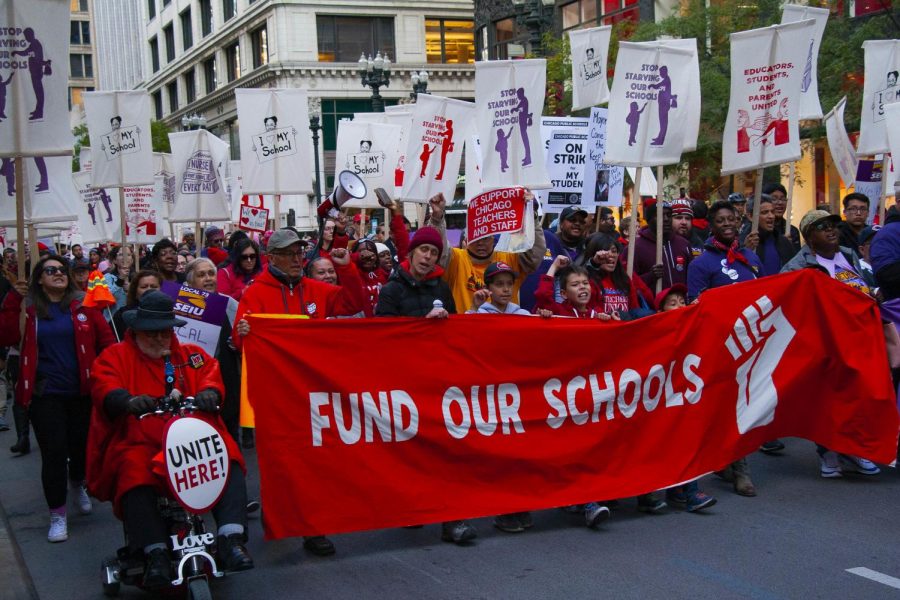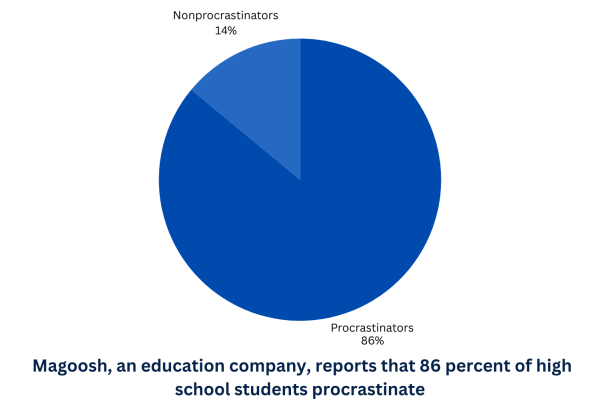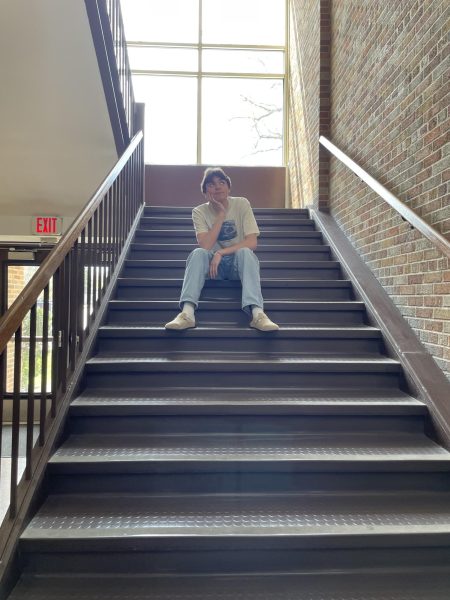CTU betrays Chicago teachers
Courtesy of Charles Edward Miller, used under Attribution-ShareAlike 2.0 Generic
Members of the Chicago Teachers Union march during their recent strike.
There is an important thread throughout history, especially in American history, of class struggle and the power of labor. Although this thread is rarely explored in classrooms across the country, it is filled with amazing tales of solidarity and grassroots progressive movement. From the ill-fated railway strikes of the late 19th century to modern-day trade unions, the American labor movement has been invaluable in defending America’s workers and pushing America forward.
Throughout history, few American cities have gone on strike more frequently or harder than Chicago. From the Haymarket Riot to the Pullman Strike to the recent teachers strike, Chicago has long been at the center of the American labor movement.
In the recently settled Chicago teacher’s strike. teachers faced off against Mayor Lori Lightfoot, who has released an austerity budget that includes regressive taxes that will fall on the working class and $150 million in government service cuts. Lightfoot claimed that there was simply no money to meet the demands of the teachers, yet her proposed budget’s largest expenditure is $703 million in “bond redemption and interest liabilities” clearly to benefit the rich of Chicago. Lightfoot also chose the same negotiation team that former Mayor Rahm Emanual used, which fought the teachers for every inch and concession they won during their 2012 strike.
The newly agreed-upon deal, which provides more resources for teachers’ demands and includes additional nurses and social workers in schools, the teachers won from Lightfoot may seem groundbreaking and impressive, but it was not the victory the upper echelons of the Chicago Teachers Union (CTU) portray it to be.
Most teachers won’t see an increase in prep time. The promised increases in social workers and nurses are wholly inadequate, being too little over too long of a period. No concessions were made on the teachers’ demands for better affordable housing for their students and themselves.
An attempt was made to address the crippling issues that teachers and students face every day. This was no victory, and CTU knows it. Although the CTU is supposed to represent the teachers and defend their interests, it has become a bureaucratic institution of its own. As with all bureaucratic institutions, CTU has its own agenda, which often doesn’t align with what’s best for teachers.
CTU pushed this sad excuse for a victory through in an undemocratic fashion. After the meeting to vote on the tentative agreement and whether or not to end the strike, union delegates spoke to denounce the undemocratic process. No votes were cast; delegates were simply told to stand and be counted. Teachers were given no opportunity to study or discuss the intense 42-page contract that will rule their lives for the next five years. CTU sold the teachers out and is attempting to hide this betrayal.
The parent organization of the union, the American Federation of Teachers (AFT), has praised the outcome of the Los Angeles teachers strike in January and suggested it as a model for the Chicago strike. This is despite the fact that the L.A. strike was called off after only one week, and the deal that was pushed through met none of the teachers’ demands.
Chicago’s teachers deserve everything they demand and shouldn’t accept anything less. Any attempts to end the strike before all demands have been met are a betrayal to the cause of the teachers. To this end, it may be beneficial for the beleaguered teachers to adopt new strategies independent of the larger union’s policies.
To truly succeed, Chicago teachers should form rank and file committees in each school in order to take the organization out of CTU’s hands. The teachers should connect with workers around Chicago. Connecting the working class of Chicago in one movement of workplace democracy and solidarity, instead of allowing themselves to be isolated as individual vocations, would force the authoritative powers to meet the demands of the movement. The corporate powers of Chicago stand no chance against a united workforce, advocating for itself and its rights.
Chicago’s teachers stand against heavily entrenched, regressive powers who place profit over the education of students and the livelihood of educators. It is our job not only to express support for their righteous cause but to provide aid. Other unions joining forces with the teachers would create an unstoppable force for progress and equality within Chicago.










